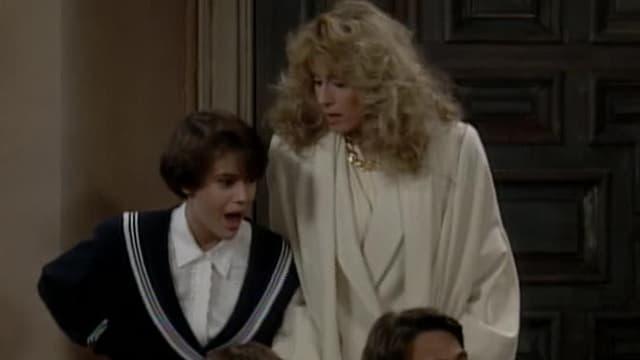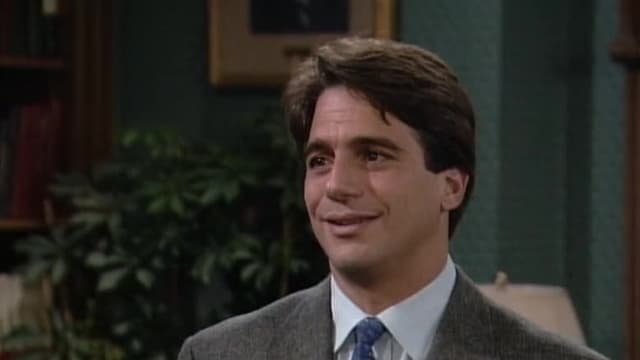Who’s the Boss? A Free-to-Air Legacy and Its Enduring Attraction
Associated Articles: Who’s the Boss? A Free-to-Air Legacy and Its Enduring Attraction
Introduction
With nice pleasure, we’ll discover the intriguing matter associated to Who’s the Boss? A Free-to-Air Legacy and Its Enduring Attraction. Let’s weave fascinating data and provide contemporary views to the readers.
Desk of Content material
Who’s the Boss? A Free-to-Air Legacy and Its Enduring Attraction

"Who’s the Boss?" wasn’t only a sitcom; it was a cultural phenomenon. For eight seasons, from 1984 to 1992, this family-friendly comedy captivated audiences with its witty writing, memorable characters, and surprisingly insightful exploration of household dynamics and gender roles. The present’s enduring recognition, readily accessible now by way of numerous free-to-air channels and streaming platforms, speaks volumes about its timeless enchantment and its capability to resonate with viewers throughout generations. This text delves into the explanations behind its success, analyzing its characters, themes, and lasting impression on tv.
The Premise: A Surprisingly Trendy Setup
The premise of "Who’s the Boss?" is deceptively easy. Tony Micelli, an enthralling former baseball participant from Brooklyn, turns into the live-in housekeeper for Angela Bower, a classy, unbiased businesswoman. Their contrasting personalities and backgrounds type the comedic bedrock of the present, making a dynamic that continuously challenges societal expectations. This unconventional association, already groundbreaking for its time, permits for a witty exploration of sophistication variations, gender roles, and the evolving nature of household. The free-to-air availability of the present permits new audiences to find this surprisingly fashionable tackle home life, a stark distinction to many different sitcoms of its period that centered on extra conventional household constructions.
The Characters: A Mix of Archetypes and Individuality
The success of "Who’s the Boss?" hinges on its well-developed and relatable characters. Tony, performed with easy attraction by Tony Danza, is greater than only a lovable rogue. He is a hardworking man with a powerful ethical compass, grappling with the challenges of being a single father whereas concurrently navigating the complexities of his relationship with Angela. Angela, portrayed with sharp wit and style by Judith Gentle, is a powerful, unbiased lady who refuses to be outlined by conventional gender roles. Her profession as an promoting govt gives a refreshing counterpoint to the stay-at-home moms continuously depicted in sitcoms of the time.
Their daughter, Samantha (Alyssa Milano), gives a teenage perspective, typically serving because the voice of purpose amidst the adults’ comedic clashes. Her evolution all through the sequence mirrors the altering panorama of adolescence, providing a glimpse into the challenges and triumphs of rising up within the Eighties. The addition of Tony’s father, Angelo (Danny DeVito), in later seasons, provides one other layer of comedic depth, representing the conflict between old-world values and fashionable sensibilities. Every character is meticulously crafted, avoiding stereotypical portrayals and permitting for real progress and growth over the eight seasons, a function that retains audiences engaged even with repeated viewings obtainable by way of free-to-air broadcasts.
Themes: Past the Laughs
Whereas "Who’s the Boss?" is undeniably a comedy, it tackles surprisingly mature themes with deftness and sensitivity. The present explores the complexities of relationships, each romantic and familial. The evolving relationship between Tony and Angela is a central thread, continuously shifting between platonic friendship, romantic pressure, and mutual respect. Their connection transcends the standard sitcom trope of a romantic pairing, providing a nuanced portrayal of two people who discover solace and assist in one another’s firm, a dynamic that resonates with audiences even right this moment.
The present additionally touches upon vital social points, equivalent to gender equality and single parenthood. Angela’s profitable profession as a businesswoman challenges the societal expectations positioned upon ladies within the Eighties. Tony’s function as a single father highlights the challenges and rewards of elevating a baby and not using a accomplice. These themes are subtly woven into the narrative, avoiding heavy-handedness whereas nonetheless making a major contribution to the continued dialog about gender roles and household constructions. The free-to-air accessibility of the present permits for a wider viewers to interact with these themes, sparking discussions and providing a invaluable perspective on social change.
The Legacy: A Timeless Sitcom
"Who’s the Boss?" enjoys a novel legacy within the tv panorama. Its mix of humor, coronary heart, and social commentary set it other than a lot of its contemporaries. The present’s enduring recognition, evident in its continued availability on free-to-air channels and streaming platforms, speaks to its timeless enchantment. It’s a present that may be loved by a number of generations, every discovering one thing relatable and interesting inside its narrative. The characters are iconic, their catchphrases nonetheless continuously quoted, and their dynamics stay relatable even many years later.
The free-to-air accessibility of "Who’s the Boss?" is a testomony to its lasting impression. It permits for a broader viewers to find and respect the present, introducing it to youthful viewers who might not have been uncovered to it throughout its preliminary run. This ensures that the present’s legacy continues, its messages of household, friendship, and the complexities of human relationships remaining related and resonant.
The Enduring Attraction: Why We Nonetheless Watch
The enduring enchantment of "Who’s the Boss?" could be attributed to a number of elements. The present’s witty writing, memorable characters, and surprisingly insightful exploration of household dynamics and gender roles proceed to resonate with audiences. The chemistry between Tony Danza and Judith Gentle is plain, making a compelling and plausible relationship that transcends the standard sitcom tropes. The present’s capability to mix humor with coronary heart, offering each laughs and moments of real emotion, makes it a very satisfying viewing expertise.
Moreover, the present’s accessibility by way of free-to-air channels and streaming platforms makes it simply obtainable to a large viewers. This ensures that new generations can uncover and respect the present, making certain that its legacy continues to thrive. In a world typically dominated by cynicism and negativity, "Who’s the Boss?" affords a refreshing dose of optimism, humor, and heartwarming moments, making it a welcome escape and a timeless traditional.
Conclusion: A Legacy of Laughter and Perception
"Who’s the Boss?" is greater than only a nostalgic sitcom obtainable without cost. It is a testomony to the facility of well-crafted characters, witty writing, and insightful storytelling. Its enduring recognition, fueled by its free-to-air availability, permits its legacy to proceed, introducing new audiences to its timeless enchantment and its surprisingly fashionable tackle household and relationships. It stays a reminder that even the best of premises can create a present that resonates deeply with viewers for many years to return, a testomony to its enduring attraction and its lasting impression on tv historical past. The laughter it gives is barely matched by the considerate reflection it evokes, making it a very worthwhile and pleasant expertise for viewers of all ages.








Closure
Thus, we hope this text has offered invaluable insights into Who’s the Boss? A Free-to-Air Legacy and Its Enduring Attraction. We hope you discover this text informative and helpful. See you in our subsequent article!